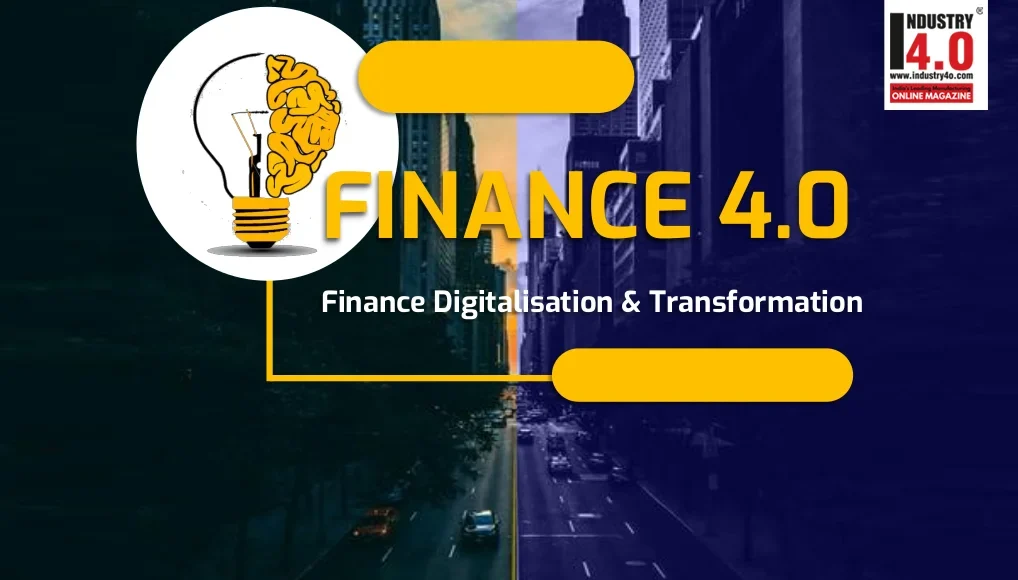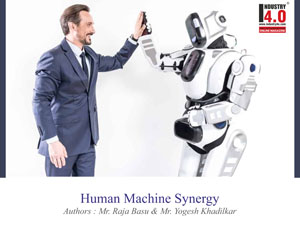Investment Banking Operations amid a Tech – Infused
Transformation
It’s a point of near consensus that the financial markets, as an industry, are exceptionally fluid due to the intricacies of emerging products, the scarcity of data, varied regulations, and the looming threat of cyber-crimes. These factors collectively offer substantial challenges for major investment organisations. Although the risks associated with financial markets are widely acknowledged, embracing innovative methods, models, and technologies could empower the banking industry to meet the growing demands of the evolving landscape. Moreover, optimized operations and advanced technology could effectively tackle the increasing requirements of regulatory authorities, ensuring meticulous compliance. For investors and profitability, a firm’s transparency and efficiency are of utmost importance. This article explores how the latest technologies, alongside robust operational frameworks, can adeptly manage Capital Market Operations. Characterised by AI, big data, and automation, Industry 4.0 signifies a revolutionary shift in the industrial sector. In the context of capital market operations, its impact is transformative, leading to automated trading, data-informed decision-making, more efficient risk management with real-time analytics, and profitable investment strategies to enhance customer satisfaction. Nonetheless, this necessitates cybersecurity measures and regulatory adaptations to address the challenges presented by these innovations.
Whilst the concept of Industry 4.0, denoting the fourth industrial revolution, is primarily focused on manufacturing and supply chain technologies and their applications. What sets Industry 4.0 apart is its potential applicability to financial markets industry as well. As the financial markets products and subsequent trading grow increasingly complicated, it has become even more imperative to simplify operations by adopting Industry 4.0 technologies. Apparently steering an investment bank may entail a straightforward approach, refining operations, target operating models and incorporating cutting-edge technologies could incur substantial implementation costs. Thus, any proposed technology transformation should undergo meticulous scrutiny and decision-making, with a specific focus on Industry 4.0 solutions that offer integrated platforms to efficiently manage various asset classes, elevate data-driven decision-making, and empower stake holders with adequate knowledge to fully harness the potential of these advanced technologies and effectively navigate unforeseen challenges. The adoption of Industry 4.0 principles has the potential to provide financial institutions with the means to secure a competitive advantage in an ever-changing arena, simultaneously meeting the rising demands of investors and market participants.
Up to now, our understanding has revolved around the importance of capital markets operations and the relevance of Industry 4.0. Yet, what if these operations were to experience interruptions due to manual errors or technical glitches? The critical consideration lies in whether the relevant technologies can adequately confront these challenges and reinstate the continuation of operations and restore the seamless flow. Let us take an example to expand our understanding:
Consequences of Operations Going Wrong:
The impact of operational errors resonates throughout the financial ecosystem. It erodes investor trust, undermines market integrity, results in financial losses, attracts regulatory scrutiny, and damages the firm’s reputation. Moreover, one event could have ripple effect on different areas of financial markets, affecting counterparties, clients, other banks, connected institutions, agencies, intermediaries, and even broader economic stability.
Trade Initiation: An infamous example is the “Flash Crash” of May 6, 2010, also known as crash of 2.45, happened when erroneous high-frequency trades caused the Dow Jones Industrial Average to plummet almost 1,000 points in a matter of minutes before recovering quickly. The incident exposed the vulnerability of automated trading systems to unexpected consequences and showcased the need for strict operational risk management. It was accepted that any automated system needs supervisions, testing and controlled implementation. Monitoring the systems and automations also becomes important in many cases.
Trade Execution: Operational errors at this stage can lead to incorrect pricing, settlement delays, and failed trades. An American global financial services firm engaging in market making, faced unexpected event in 2012. A technical glitch caused the firm’s automated trading system to execute numerous unintended trades, resulting in a loss of $440 million within a matter of minutes. This event highlighted the significance of effective control mechanisms that needs to be in place to prevent trading algorithms issues. This also highlights the need for post-trade reconciliation. This incident shows how important is the operation team’s efficiency and productivity in managing the systems and controlling the framework.
Risk assessment/Risk Management: Although the exact cause of financial crisis of 2008 is a matter of discussion and there could be many stories around the matter, major reasons for the global crisis stands out to be lack of risk management and inadequate assessment of exposure. While the pricing of structured products was not appropriate, the assessment of risk was also a major gap in this case. From overnight rates to incorrect assessment of credit worthiness of the borrowers, incorrect pricing of credit derivatives, there were several risks that lead to the catastrophe. Consequently, lenders and investors were worried about the risk and exposures of banks and other financial institutions which had multiple impact globally. Most of the models fell apart due to liquidity problems created by this crisis. This also impacted the risk management strategies, as mismarked credit derivative exposed the bank’s inadequate risk management practices and lead to closure of many big institutions. Risk management is integral part of operations, as it impacts market, credit, operational and counterparty risks.
Trade Settlements: Lack of good operations here could lead to, settlement failures, discrepancies in trade details, and delays in transferring ownership. An example is the T+2 trading settlement standard, where trades are expected to settle within two business days. Delays or errors in this process can result in liquidity problems, counterparty risk, and regulatory non-compliance. The collapse of Lehman Brothers in 2008 had a domino effect on trade settlements, as the bank’s bankruptcy led to chaos in the settlement process, causing considerable disruptions and financial losses.
Mitigation Strategies: To mitigate the risks associated with operational errors, investment banks must invest in robust operational frameworks along with advanced technology infrastructure, here Industry 4.0 plays a critical role. This involves implementing stringent controls, adopting advanced technology solutions, enhancing human oversight, conducting regular stress tests, and continuously refining operational processes. Industry 4.0 can substantially help in controlling settlement failures through its advanced technological capabilities and innovative approaches by integrating smart automation and real-time data analytics into settlement processes. Also learning from past incidents, firms must prioritize risk management, invest in training staff, and establish clear communication between trading, operations, and IT teams.
Conclusion
To sum up, by utilising intelligent operations and processes via Industry 4.0, and by embracing inventive approaches, the investment banking sector can bolster its capacity to meet changing challenges head-on. The assimilation of Industry 4.0 technologies, featuring AI, big data, and automation, presents the potential to revolutionise investment banking operations. This encompasses automated trading, data-driven decision-making, and refined investment strategies, all contributing to an improved customer experience and increased profitability.
Even with these opportunities at hand, it’s vital to enforce strong cybersecurity protocols and make necessary regulatory modifications to effectively tackle the challenges brought about by these innovations. Overall, the principles of Industry 4.0 hold a promising route for financial institutions to maintain their competitive edge, cater to the growing demands of investors, and navigate the intricacies of an ever-evolving landscape. It’s important to note that Industry 4.0 can play truly a significant role in streamlining operations, enhancing the overall efficiency of investment banks.
About the Authors :

Ms. Rashmi Rao
Senior Industry Consultant- Financial Markets.
Ms. Rashmi Rao is a trainer on Stock Market Investment and Trading.
Ms. Rashmi Rao is also a Eloquent Speaker on topics related to Financial Markets & has also authored many Articles.
Ms. Rashmi Rao can be contacted at :
 Mr. Raja Basu
Mr. Raja Basu
Business Value Architect- Financial Markets.
Mr. Raja Basu is an experienced leader in both technology and business, he has a proven track record of defining and implementing technology-driven transformations for clients in the global banking and financial markets.
Mr. Raja Basu focus lies in automation, particularly artificial intelligence (AI), and its impact on climate and sustainability (SCR).
Mr. Raja Basu possess a deep understanding of value-driven advisory practices, which have played a significant role in building strong client relationships. Throughout his career, he has actively contributed to numerous transformation programs involving complex applications for international clients across the United States, Canada, Europe, and Singapore.
Mr. Raja Basu is Bestowed with the following Licenses & Certifications :
https://www.linkedin.com/in/ba
Mr. Raja Basu is Volunteering in the following International Associations & Institutions :
https://www.linkedin.com/in/ba
Mr. Raja Basu is Accorded with the following Honors & Awards :
https://www.linkedin.com/in/ba
Mr. Raja Basu can be contacted at :
Also read Mr. Raja Basu’s earlier article :













